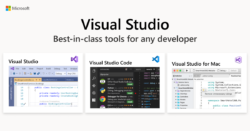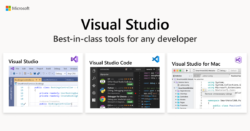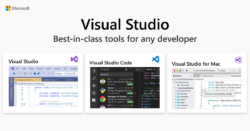Ruby
Ruby is a dynamic, open source programming language with a focus on simplicity and productivity. It has an elegant syntax that is natural to read and easy to write. With a growing community of developers, Ruby is a great choice for web development, scripting, and more.
Who is Ruby for?
- Back-End Developers
- Data Scientists
- DevOps Engineers
- Full-Stack Developers
- Mobile App Developers
- Software Engineers
- Web Developers
Why you should find out more
- Ruby is the 5th most popular language on GitHub, with over 1.2 million repositories.
- Ruby is the fastest growing programming language, with a +400% increase in usage since 2015.
- Ruby is the language of choice for many of the world's most popular web applications, including Airbnb, GitHub, and Shopify.
What are the benefits of Ruby?
- Dynamic Typing
- Easy Syntax
- High Performance
- Open Source
Things to consider
- Lack of Support
- Limited Libraries
- Slow Performance
- Steep Learning Curve
What is Ruby?
Ruby is a dynamic, open source programming language with a focus on simplicity and productivity.
It has an elegant syntax that is natural to read and easy to write.
Ruby is used for web development, data analysis, system administration, and more.
Who Should Use Ruby?
Ruby is a great choice for developers of all levels.
It is especially popular among beginners due to its easy-to-learn syntax and helpful online resources.
Experienced developers also appreciate Ruby for its flexibility and scalability.
Key Benefits and Features
- Dynamic and open source
- Elegant syntax
- Flexible and scalable
- Easy to learn and use
- Helpful online resources
How Does Ruby Compare to Its Competitors?
Ruby is often compared to other programming languages such as Python, JavaScript, and PHP.
Ruby is generally considered to be more concise and easier to read than its competitors, making it a great choice for beginners.
It is also more flexible and scalable than other languages, making it a great choice for experienced developers.
Back-End Developers
Keep up to date about Application Development offers like Ruby
Privacy| Features |
|---|
Help & Support
- What is Ruby?
- Ruby is a dynamic, open source programming language with a focus on simplicity and productivity. It has an elegant syntax that is natural to read and easy to write.
- What is the latest version of Ruby?
- The latest version of Ruby is 2.7.1, released on December 25, 2020.
- What platforms does Ruby run on?
- Ruby runs on a variety of platforms, including Windows, Mac OS X, Linux, and Unix.
- What is the license for Ruby?
- Ruby is released under the two-clause BSD License.
- Where can I find documentation for Ruby?
- The official documentation for Ruby can be found at https://www.ruby-lang.org/en/documentation/
- Where can I find tutorials for Ruby?
- There are many tutorials available online for Ruby, including the official Ruby Tutorial at https://www.ruby-lang.org/en/documentation/quickstart/
- Where can I find help with Ruby?
- The official Ruby mailing list is a great place to get help with Ruby. You can find it at https://www.ruby-lang.org/en/community/mailing-lists/
Comparisons
Application Development for Data Scientists
Cross-Platform for Data Scientists
Object-Oriented Programming for Data Scientists
Open Source for Data Scientists
Ruby for Data Scientists
Software Development for Data Scientists
- Ruby / Android Studio
- Ruby / Vim
 Ruby / Visual Studio Professional
Ruby / Visual Studio Professional Ruby / Visual Studio Enterprise
Ruby / Visual Studio Enterprise- Ruby / Launchpad
- Ruby / Pluralsight
Web Development for Data Scientists
Application Development for DevOps Engineers
Web Development for Full-Stack Developers
Web Development for Mobile App Developers
Application Development for Software Engineers
Object-Oriented Programming for Software Engineers
Software Development for Software Engineers
Open Source for Web Developers
Web Development for Web Developers
Other Open Source
Other Programming Language
Other Software Development
 Ruby / Auvik
Ruby / Auvik- Ruby / Git
- Ruby / BugHerd
 Ruby / GitHub
Ruby / GitHub Ruby / Visual Studio Code
Ruby / Visual Studio Code Ruby / JetBrains
Ruby / JetBrains- Ruby / Xcode
 Ruby / Visual Studio Community
Ruby / Visual Studio Community Ruby / Visual Studio Test Professional
Ruby / Visual Studio Test Professional- Ruby / Plastic SCM





